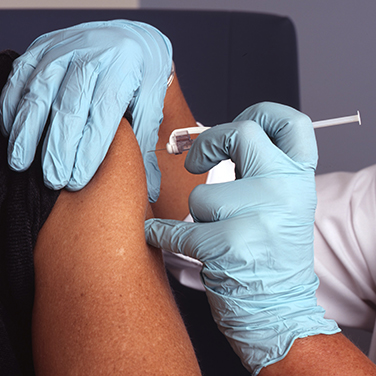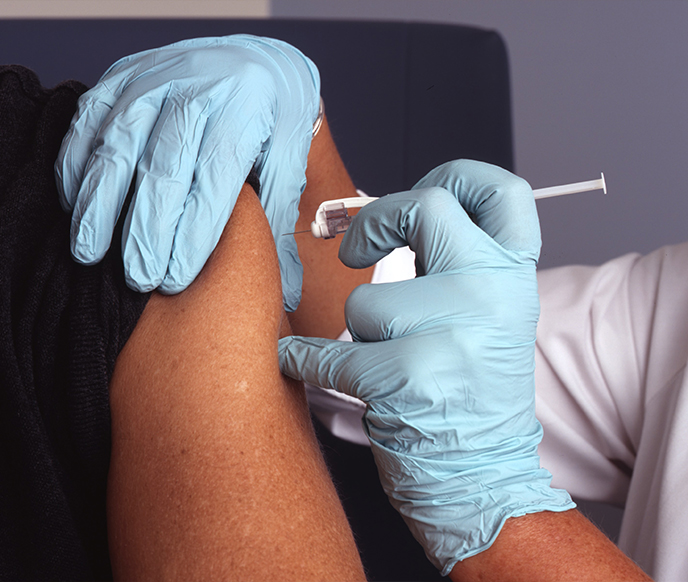Welcome to Giddy's series for Ovarian Cancer Awareness Month. Each week, we will tackle a different aspect of ovarian cancer and shed light on common misconceptions. This week, let's take a look at prevention.


Ovarian Cancer Awareness Month: Prevention
Ovarian cancer occurs when abnormal cells in the ovaries multiply rapidly and form a tumor. It ranks fifth in cancer deaths among women, and the American Cancer Society estimates that this year, about 21,410 women will receive an ovarian cancer diagnosis and about 13,770 women will die from ovarian cancer.
September is Ovarian Cancer Awareness Month, and Giddy is here to help walk you through everything you need to know about this disease. This week, we're talking about prevention. While there is no proven way to prevent ovarian cancer, it's important to know what the research says in order to take any protective measures available.


False. The HPV vaccine can prevent most types of cervical cancer if it is administered before a person is exposed to the human papillomavirus (HPV). It can also reduce the risk of vaginal, vulvar and anal cancers, and the medical conditions associated with them, since those cancers can be caused by HPV. Unfortunately, however, the HPV vaccine does not prevent ovarian cancer. There is no association between HPV and ovarian cancer.

Possibly true. A report published in the Journal of the American Medical Association (JAMA) in early 2020 analyzed studies of more than 250,000 women and found a slightly greater incidence of ovarian cancer in women who had reported using talcum powder in the past. However, the National Institute of Environmental Health Sciences and the National Cancer Institute concluded the link is not statistically significant. The findings did not rule out, however, a "small increase in risk" from using talcum powder. The American Cancer Society states that if there is an increased risk, it's likely to be very small.



False. Pap smears can detect only abnormalities related to cervical cancer—they cannot detect sexually transmitted infections (STIs) and other gynecologic cancers, including ovarian cancer and fallopian cancer. If your Pap smear results come back as normal, it only means that the lab technicians did not detect signs of cervical cancer.

False. As with many cancers, a balanced diet high in whole foods (fruits, vegetables, whole grains, legumes) and low in processed foods, red meats and added sugars may lower your risk of developing ovarian cancer. A 2009 study from the American Journal of Clinical Nutrition looked at 40 food groups and the eating patterns of 1,460 women (683 with epithelial ovarian cancer and 777 without) and found a "diet characterized by high meat and fat intake may increase the risk of epithelial ovarian cancer."
These results were consistent with a 2001 study in Nutrition and Cancer that analyzed 6,689 women and found a high total fat intake was associated with a 24 percent increased risk of ovarian cancer, a high saturated fat intake was associated with a 20 percent increased risk, and there was a 70 percent increased risk for the women who had the highest intake of animal fat.



True. A 2016 study in Cancer Epidemiology, Biomarkers & Prevention, which analyzed data from 20,921 women (8,309 with epithelial ovarian cancer and 12,612 without) found that women who did not engage in physical activity were 34 percent more likely to develop ovarian cancer compared to those who exercised regularly. Another 2016 study, from the British Journal of Cancer, analyzed 6,806 women with epithelial ovarian cancer and reported a 22 percent to 34 percent increased mortality risk (independent of weight) for the physically inactive women compared to women who engaged in some physical activity.

True. Because there is no surefire way to prevent ovarian cancer from occurring and because there is a lack of clear-cut symptoms, the best course of action continues to be paying attention to the well-known risk factors, keeping up with doctor visits and consulting with your doctor if you have concerns, especially if any immediate family members have a history of ovarian cancer. This will give you the best chance possible at potentially life-saving early detection and treatment.










